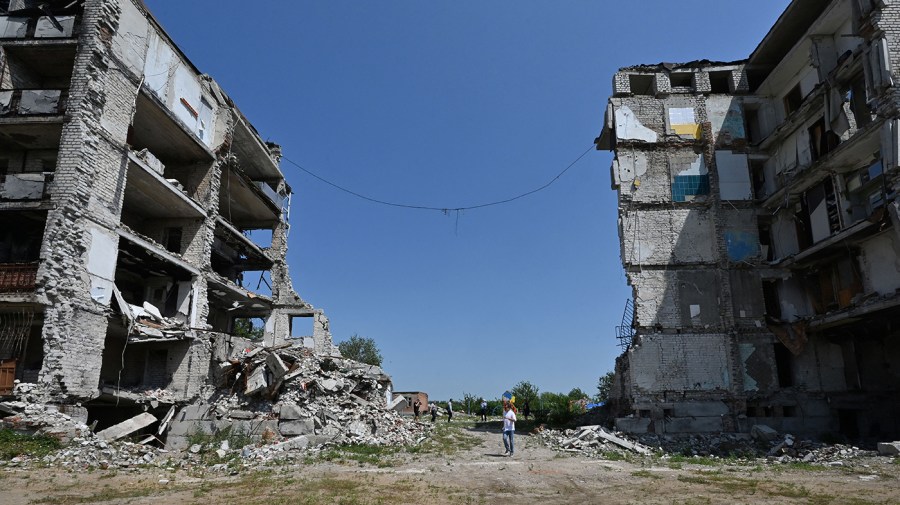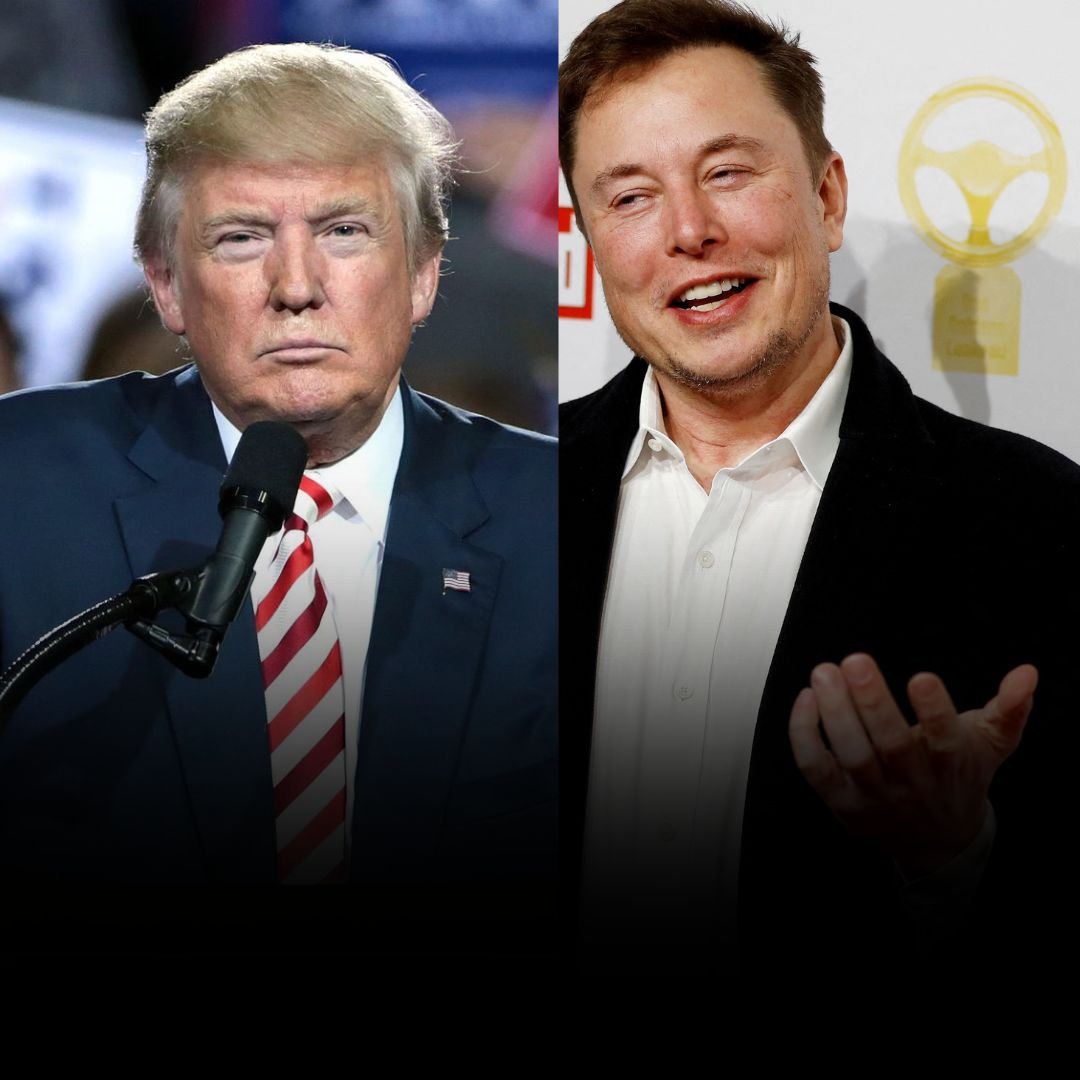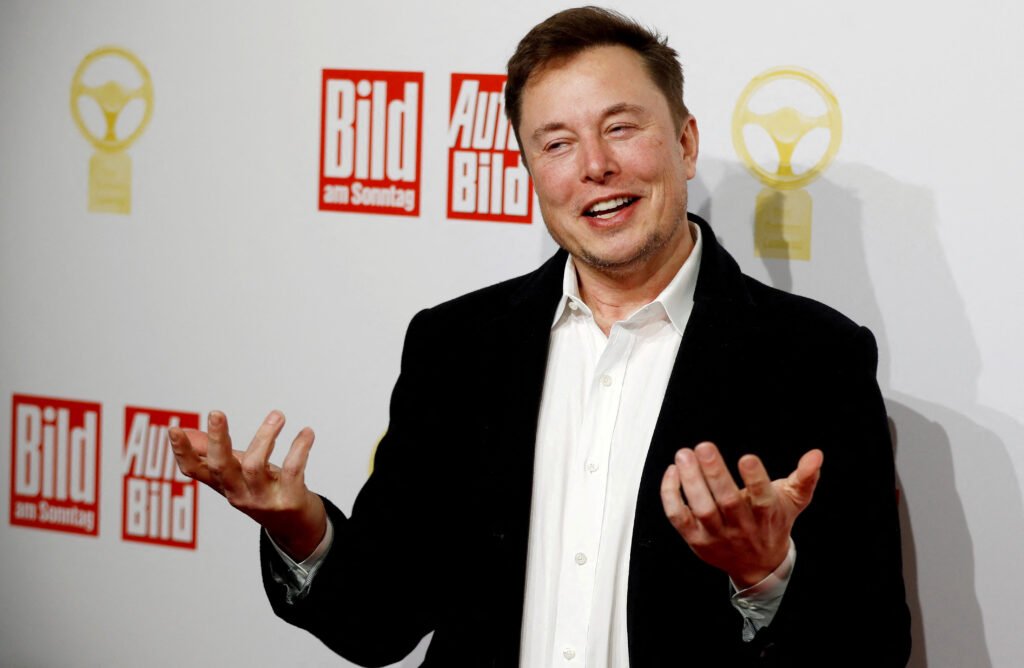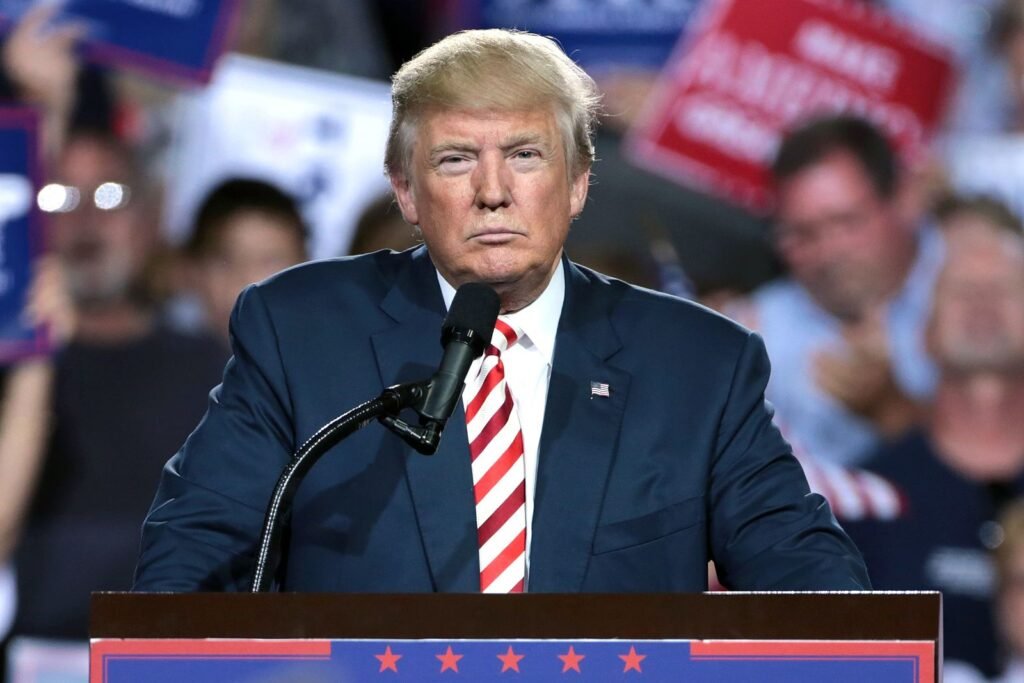World News
Russia takes a dangerous turn in its war on Ukraine on July 29, 2023 at 9:30 pm

Russia has entered a dangerous new phase of its war against Ukraine since it exited the Black Sea grain deal earlier this month, weaponizing global food exports, stepping up attacks on Ukrainian ports and cities and increasing the risk of spillover into NATO countries.
Russia’s escalation is unlikely to deter the U.S. and allies from following through on delivering F-16 fighter jets and long-range missiles to Ukraine in the coming months, which Moscow has repeatedly warned against.
But it comes as Ukraine is struggling to make major gains in its grinding counteroffensive, and Russia’s strategy appears aimed at straining U.S. and European partners who have provided billions in assistance to Ukraine over the course of 16 months.
“Certainly, it’s an escalation,” said Thomas Graham, a distinguished fellow with the Council on Foreign Relations and who served as a senior director for Russia on the National Security Council under former President George W. Bush.
“Russia, I think, is clearly making an effort to continue to deepen the damage to the Ukrainian economy,” he added. “It has implications for Ukraine’s ability to continue the war effort, it raises concerns about attacks on NATO territory … so it’s a reason to be concerned.”
Since pulling out of the Black Sea grain deal July 17, Russian President Vladimir Putin has targeted attacks on Ukraine’s southern city of Odesa, damaging the seaport and grain storage facilities and hitting residential and historical buildings, including an Orthodox cathedral.
The grain deal, negotiated by the United Nations and Turkey, allowed for the export of Ukrainian grain through a Russian blockade on the Black Sea, clearing the way for 33 million metric tons of foodstuffs to move across the world, largely to developing countries, since it took effect in July 2022.
But now, Putin is warning he views commercial ships in the Black Sea as legitimate military targets. The U.S. and the United Kingdom are warning Russia is plotting “false flag operations,” covertly mining the sea with the purpose of blaming Ukraine for any explosions.
NATO and member countries bordering Ukraine are on high alert.
“Russia bears full responsibility for its dangerous and escalatory actions in the Black Sea region,” NATO Secretary-General Jens Stoltenberg said Wednesday during a meeting of the NATO-Ukraine Council.
“Russia’s actions also pose substantial risks to the stability of the Black Sea region, which is of strategic importance to NATO,” he added. “Allies are stepping up support to Ukraine and increasing our vigilance. We remain ready to defend every inch of Allied territory from any aggression.”
Romanian President Klaus Iohannis on Monday condemned a Russian attack on a civilian port on the Danube River in Ukraine near his country, tweeting that the “escalation pose[s] serious risks to the security in the Black Sea.”
And Putin last week delivered a threat to NATO member Poland, accusing Warsaw of having designs on Belarus and saying an attack against Minsk would trigger a response from Moscow.
Poland is dispatching an additional 1,000 troops to its borders with Belarus, concerned over Wagner mercenary forces exiled to the country after retreating from a short-lived rebellion against Moscow in June.
Mary Beth Long, who served as assistant secretary of Defense during the George W. Bush administration, said Russia is seeking to maximize pressure on Kyiv and its allies in the lead-up to a slowdown of military operations by the winter.
“You can’t escalate your way in or out of this, I think both sides know that. But there’s more consequences to Ukraine because Russia is bigger, Russia is willing to strike civilians and its infrastructure, and it has shown that it can successfully do so,” she said.
“There’s no real consequences to Russia, from Ukraine or NATO, there’s no penalty to be paid for that, so that clears the way for him [Putin] to continue to not only strike against critical infrastructure and these nodes but to expand it.”
Long warned that Russia views the month of August as the best opportunity to inflict the most damage without a coherent response from the West, as American lawmakers are absent from Capitol Hill, European capitals are similarly quiet and NATO has no major meetings.
“I think Russia’s made the assessment that it has freedom of movement, in the next couple of months in particular,” she said. “It is doing everything it can to set the playing field before winter and it will continue to do so.”
While Russia is ramping up military tensions in the Black Sea, experts said its withdrawal from the grain deal is focused on the economic realm: sanctions relief and increasing trade.
“Russia really wants to make a deal,” said Mark Cancian, a senior adviser with the International Security Program of the Center for Security and International Security (CSIS).
“The difficult trade-offs for the U.S. and the West are not going to be the military equipment ones, but the ones about economics and sanctions. Are we willing to ease those restrictions in the interests of opening up grain shipments?” he asked.
Putin has long criticized the deal as failing to meet his demands for the export of Russian grains and fertilizer and has given little to no signal that he’s open to rejoining the agreement.
During a meeting with African leaders in St. Petersburg on Thursday, the Russian president committed to delivering nearly 300,000 tons of grain to six African countries “free of charge.”
The Russian president is also calling for sanctions relief on Russia’s agricultural bank, Rosselkhozbank, wanting it reconnected to the SWIFT international payment network.
Absent Moscow’s cooperation, the options for shipping grain out of Ukraine are not attractive.
While Ukraine is shipping grain and foodstuffs by rail and road, that amount is hundreds of thousands of tons less than can be moved through the Black Sea.
The U.K. Ministry of Defense tweeted Wednesday that Russia’s Black Sea Fleet is altering its position in preparation to enforce a blockade against Ukraine, warning the “potential for the intensity and scope of violence in the area to increase.”
Still, Cancian from the CSIS was optimistic that a solution surrounding grain exports from Ukraine would be reached in a relatively short time frame.
“They’re likely to make a deal in a week or so,” he said. “This is, I think, unlikely to sort of linger for weeks or months.”
Russia has entered a dangerous new phase of its war against Ukraine since it exited the Black Sea grain deal earlier this month, weaponizing global food exports, stepping up attacks on Ukrainian ports and cities and increasing the risk of spillover into NATO countries. Russia’s escalation is unlikely to deter the U.S. and allies from…
Business
Pros and Cons of the Big Beautiful Bill

The “Big Beautiful Bill” (officially the One Big Beautiful Bill Act) is a sweeping tax and spending package passed in July 2025. It makes permanent many Trump-era tax cuts, introduces new tax breaks for working Americans, and enacts deep cuts to federal safety-net programs. The bill also increases spending on border security and defense, while rolling back clean energy incentives and tightening requirements for social programs.

Pros
1. Tax Relief for Middle and Working-Class Families
- Makes the 2017 Trump tax cuts permanent, preventing a scheduled tax hike for many Americans.
- Introduces new tax breaks: no federal income tax on tips and overtime pay (for incomes under $150,000, with limits).
- Doubles the Child Tax Credit to $2,500 per child through 2028.
- Temporarily raises the SALT (state and local tax) deduction cap to $40,000.
- Creates “Trump Accounts”: tax-exempt savings accounts for newborns.
2. Support for Small Businesses and Economic Growth
- Makes the small business deduction permanent, supporting Main Street businesses.
- Expands expensing for investment in short-lived assets and domestic R&D, which is considered pro-growth.
3. Increased Spending on Security and Infrastructure
- Allocates $175 billion for border security and $160 billion for defense, the highest peacetime military budget in U.S. history.
- Provides $12.5 billion for air traffic control modernization.
4. Simplification and Fairness in the Tax Code
- Expands the Earned Income Tax Credit (EITC) and raises marginal rates on individuals earning over $400,000.
- Closes various deductions and loopholes, especially those benefiting private equity and multinational corporations.

Cons
1. Deep Cuts to Social Safety Net Programs
- Cuts Medicaid by approximately $930 billion and imposes new work requirements, which could leave millions without health insurance.
- Tightens eligibility and work requirements for SNAP (food assistance), potentially removing benefits from many low-income families.
- Rolls back student loan forgiveness and repeals Biden-era subsidies.
2. Increases the Federal Deficit
- The bill is projected to add $3.3–4 trillion to the federal deficit over 10 years.
- Critics argue that the combination of tax cuts and increased spending is fiscally irresponsible.
3. Benefits Skewed Toward the Wealthy
- The largest income gains go to affluent Americans, with top earners seeing significant after-tax increases.
- Critics describe the bill as the largest upward transfer of wealth in recent U.S. history.
4. Rollback of Clean Energy and Climate Incentives
- Eliminates tax credits for electric vehicles and solar energy by the end of 2025.
- Imposes stricter requirements for renewable energy developers, which could lead to job losses and higher electricity costs.

5. Potential Harm to Healthcare and Rural Hospitals
- Reduces funding for hospitals serving Medicaid recipients, increasing uncompensated care costs and threatening rural healthcare access.
- Tightens verification for federal premium subsidies under the Affordable Care Act, risking coverage for some middle-income Americans.
6. Public and Political Backlash
- The bill is unpopular in public polls and is seen as a political risk for its supporters.
- Critics warn it will widen the gap between rich and poor and reverse progress on alternative energy and healthcare.
Summary Table
| Pros | Cons |
|---|---|
| Permanent middle-class tax cuts | Deep Medicaid and SNAP cuts |
| No tax on tips/overtime for most workers | Millions may lose health insurance |
| Doubled Child Tax Credit | Adds $3.3–4T to deficit |
| Small business support | Benefits skewed to wealthy |
| Increased border/defense spending | Clean energy incentives eliminated |
| Simplifies some tax provisions | Threatens rural hospitals |
| Public backlash, political risk |
In summary:
The Big Beautiful Bill delivers significant tax relief and new benefits for many working and middle-class Americans, but it does so at the cost of deep cuts to social programs, a higher federal deficit, and reduced support for clean energy and healthcare. The bill is highly polarizing, with supporters touting its pro-growth and pro-family provisions, while critics warn of increased inequality and harm to vulnerable populations.
Business
Trump Threatens to ‘Take a Look’ at Deporting Elon Musk Amid Explosive Feud

The escalating conflict between President Donald Trump and Elon Musk reached a new peak this week, as Trump publicly suggested he would consider deporting the billionaire entrepreneur in response to Musk’s fierce criticism of the president’s signature tax and spending bill.

“I don’t know, we’ll have to take a look,” Trump told reporters on Tuesday when asked directly if he would deport Musk, who was born in South Africa but has been a U.S. citizen since 2002.
This threat followed a late-night post on Trump’s Truth Social platform, where he accused Musk of being the largest recipient of government subsidies in U.S. history. Trump claimed that without these supports, Musk “would likely have to shut down operations and return to South Africa,” and that ending such subsidies would mean “no more rocket launches, satellites, or electric vehicle production, and our nation would save a FORTUNE”.
Trump also invoked the Department of Government Efficiency (DOGE)—a federal agency Musk previously led—as a potential tool to scrutinize Musk’s companies. “We might have to put DOGE on Elon. You know what DOGE is? The DOGE is the monster that might have to go back and eat Elon,” Trump remarked, further intensifying the feud.

Background to the Feud
The rupture comes after Musk’s repeated attacks on Trump’s so-called “Big, Beautiful Bill,” a comprehensive spending and tax reform proposal that Musk has labeled a “disgusting abomination” and a threat to the nation’s fiscal health. Musk, once a Trump ally who contributed heavily to his election campaign and served as a government advisor, has called for the formation of a new political party, claiming the bill exposes the need for an alternative to the current two-party system.
In response, Trump’s allies have amplified questions about Musk’s citizenship and immigration history, with some suggesting an investigation into his naturalization process. However, legal experts note that deporting a naturalized U.S. citizen like Musk would be extremely difficult. The only path would involve denaturalization—a rare and complex legal process requiring proof of intentional fraud during the citizenship application, a standard typically reserved for the most egregious cases.
Political Fallout
Musk’s criticism has rattled some Republican lawmakers, who fear the feud could undermine their party’s unity ahead of the 2026 midterm elections. Meanwhile, Musk has doubled down on his opposition, warning he will support primary challengers against Republicans who back Trump’s bill.
Key Points:
- Trump has publicly threatened to “take a look” at deporting Elon Musk in retaliation for Musk’s opposition to his legislative agenda.
- Legal experts say actual deportation is highly unlikely due to the stringent requirements for denaturalizing a U.S. citizen.
- The feud marks a dramatic reversal from the pair’s earlier alliance, with both men now trading barbs over social media and in public statements.
As the dispute continues, it has become a flashpoint in the broader debate over government spending, corporate subsidies, and political loyalty at the highest levels of American power.
News
Christianity Emerges as Fastest-Growing Religion in Iran Despite Crackdowns

Christianity is experiencing unprecedented growth in Iran, making it the fastest-growing religion in the country despite severe government crackdowns and the risk of harsh penalties for converts. Recent studies and reports from both religious organizations and independent researchers confirm that the number of Christians in Iran has surged over the past decade, with estimates now ranging from 800,000 to as many as 3 million believers, many of whom are converts from Islam.

This remarkable trend is unfolding against a backdrop of systematic persecution. Iranian authorities routinely target house churches, arresting and imprisoning Christians for activities deemed a threat to national security or as “propaganda against the regime.” In 2022 alone, at least 134 Christians were arrested, with dozens receiving prison sentences or being forced into exile. Conversion from Islam remains a criminal offense in Iran, punishable by severe penalties, including, in rare cases, the death penalty.
Despite these dangers, the church in Iran is flourishing underground. The growth is especially notable among young people, many of whom are disillusioned with the country’s strict Islamic rule and are seeking spiritual alternatives that emphasize personal faith and community. Secret house churches and underground networks have become the primary venues for worship and community, with large-scale baptisms sometimes taking place in secret or even across the border.

The Iranian government has acknowledged the trend with concern. Officials have dispatched agents to counter the spread of Christianity, and Islamic clerics have issued warnings about the faith’s rapid expansion. Nevertheless, satellite TV broadcasts, digital outreach, and word-of-mouth continue to fuel the movement, bringing the Christian message to new audiences across the country.

Scholars and observers agree that Iran is witnessing one of the highest rates of Christianization in the world today. Forecasts suggest the Christian population could double again by 2050, even as persecution persists. For many Iranians, Christianity offers a message of hope and transformation that stands in stark contrast to the repressive environment they face, making its spread all the more remarkable in one of the world’s most closed societies.

 Advice2 weeks ago
Advice2 weeks agoWhat SXSW 2025 Filmmakers Want Every New Director to Know

 Film Industry2 weeks ago
Film Industry2 weeks agoFilming Yourself and Look Cinematic

 Politics3 weeks ago
Politics3 weeks agoBolanle Newsroom Brief: Israel Strikes Iran’s Nuclear Sites — What It Means for the World

 News5 days ago
News5 days agoFather Leaps Overboard to Save Daughter on Disney Dream Cruise

 Advice1 week ago
Advice1 week agoWhy 20% of Us Are Always Late

 Health4 days ago
Health4 days agoMcCullough Alleges Government Hid COVID Vaccine Side Effects

 Entertainment3 weeks ago
Entertainment3 weeks agoThe Hidden Reality Behind Victoria’s Secret

 Advice1 week ago
Advice1 week agoHow to Find Your Voice as a Filmmaker




























